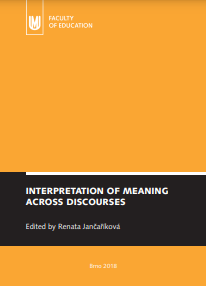WORD-ORDER AS A MEANS OF RESOLVING AMBIGUITY
WORD-ORDER AS A MEANS OF RESOLVING AMBIGUITY
Author(s): Vladislav Smolka
Subject(s): Foreign languages learning, Media studies, Theoretical Linguistics, Syntax, Lexis, Semantics
Published by: Masarykova univerzita nakladatelství
Keywords: word-order; ambiguity; scope; FSP; newspaper discourse;
Summary/Abstract: English word-order performs a variety of functions: some of these have received considerable attention while others have remained relatively underexplored. The dominant function of word-order in English is to signal the syntactic function of an element through its position in the sentence. Consequently, the linear arrangement of clause constituents is much less variable than in Czech, for example, where the signalling role is performed by inflections. Nevertheless, even the English word-order is not absolutely rigid. Deviations from the canonical word-order may be motivated by factors such as the functional sentence perspective, the relative length and structural complexity of the respective clause constituent, as well as by the need to achieve cohesion of the text. This paper looks at deviations from the grammatical word-order which might be motivated by the need to avoid potential ambiguity, i.e. at cases where a more usual ordering of clause constituents is open to more than one interpretation. Most attention is given to potential ambiguities of scope occurring in newspaper discourse.
Book: Interpretation of Meaning Across Discourses
- Page Range: 175-184
- Page Count: 10
- Publication Year: 2018
- Language: English
- Content File-PDF

